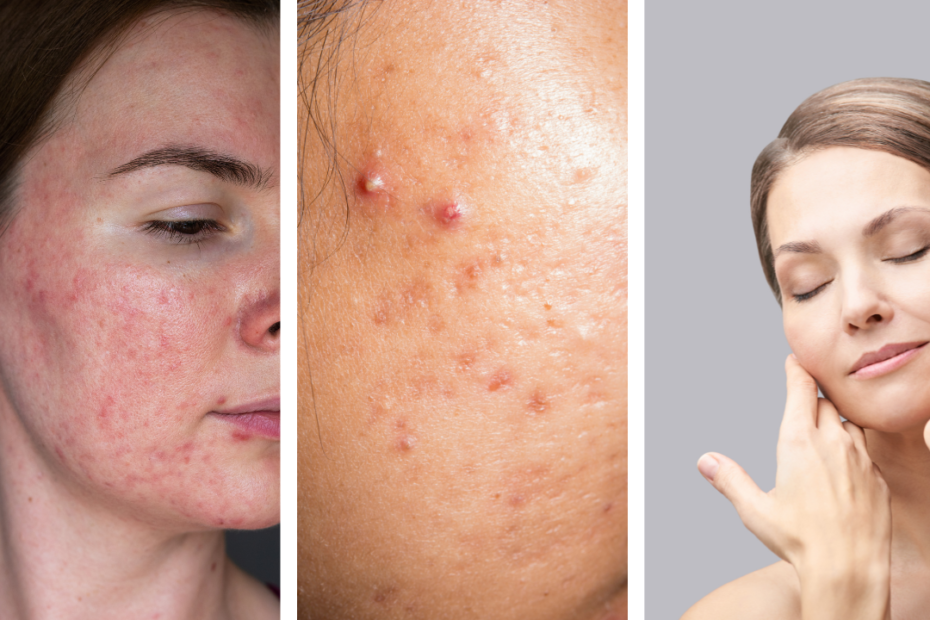Acne can be a challenging skin condition to manage, but with the right approach, achieving clearer, healthier skin is possible. Proper care, consistency, and lifestyle adjustments can significantly reduce breakouts and improve your skin’s overall appearance. Here are the 10 top acne skin care tips to help you maintain healthier skin.
1. Cleanse Your Face Twice Daily
Regular cleansing is essential to remove dirt, oil, and impurities that clog pores. Use a gentle, non-comedogenic cleanser that suits your skin type. Avoid harsh scrubs that can irritate the skin and worsen acne. Washing your face in the morning and before bed ensures that your skin stays fresh and clean without stripping away its natural oils.
Pro Tip:
Look for cleansers containing salicylic acid or benzoyl peroxide, as these ingredients target acne-causing bacteria and unclog pores effectively.
2. Use a Non-Comedogenic Moisturizer
Hydration is key for all skin types, even acne-prone skin. A lightweight, non-comedogenic moisturizer keeps your skin hydrated without clogging pores. Dehydrated skin can overcompensate by producing excess oil, leading to more breakouts.
Recommended Ingredients:
- Hyaluronic acid for hydration
- Niacinamide to calm inflammation
3. Avoid Touching Your Face
Your hands come into contact with countless surfaces throughout the day, collecting bacteria, dirt, and oils. Touching your face transfers these impurities, potentially causing new breakouts or aggravating existing ones. Be mindful of habits like resting your chin on your hands or popping pimples.
Why It Matters:
Touching or picking at acne can lead to scarring and prolonged healing times.
4. Incorporate Spot Treatments
Spot treatments can target stubborn pimples and speed up their healing. Products containing tea tree oil, benzoyl peroxide, or sulfur can reduce inflammation and dry out active blemishes. Apply a thin layer directly to the affected area after cleansing.
5. Exfoliate Weekly
Exfoliation removes dead skin cells that can clog pores and contribute to acne. Opt for a chemical exfoliant containing alpha-hydroxy acids (AHAs) or beta-hydroxy acids (BHAs) instead of harsh physical scrubs. These ingredients gently dissolve buildup without causing irritation.
Frequency:
Exfoliate 1–2 times per week to maintain a balanced skin barrier and minimize acne flare-ups.
6. Protect Your Skin with Sunscreen
Sunscreen is crucial, especially if you use acne treatments like retinoids or chemical exfoliants that increase sensitivity to the sun. Choose a broad-spectrum, non-comedogenic sunscreen with at least SPF 30 to protect your skin from harmful UV rays and prevent hyperpigmentation caused by acne.
7. Maintain a Healthy Diet
What you eat plays a significant role in your skin’s health. Diets high in processed foods, sugar, and dairy may exacerbate acne for some individuals. Focus on incorporating nutrient-rich foods, such as:
- Omega-3 fatty acids (salmon, walnuts, flaxseeds)
- Antioxidants (berries, spinach, green tea)
- Low-glycemic-index foods (whole grains, legumes)
8. Stay Hydrated
Drinking enough water helps flush toxins from your body and keeps your skin hydrated from the inside out. Proper hydration supports skin elasticity, improves overall complexion, and can reduce the frequency of breakouts.
9. Establish a Consistent Skincare Routine
Consistency is key when managing acne. Develop a simple skincare routine tailored to your skin type and concerns, including cleansing, moisturizing, and applying targeted treatments. Avoid switching products too often, as this can irritate the skin and delay results.
10. Consult a Dermatologist
If over-the-counter products and home remedies aren’t delivering the desired results, consult a dermatologist. They can assess your skin’s condition and recommend prescription treatments such as topical retinoids, oral medications, or professional procedures like chemical peels and light therapy.
Bonus Tips for Acne Prevention
- Clean Your Makeup Brushes: Regularly washing your makeup brushes prevents bacteria buildup.
- Avoid Heavy Makeup: Use non-comedogenic and oil-free cosmetics to prevent clogged pores.
- Change Pillowcases Weekly: Pillowcases accumulate oil, sweat, and bacteria, which can transfer to your skin.
Following these top acne skin care tips can help you take control of your skin and reduce breakouts effectively. Remember, patience and persistence are key to seeing long-term improvements in your skin’s health.
